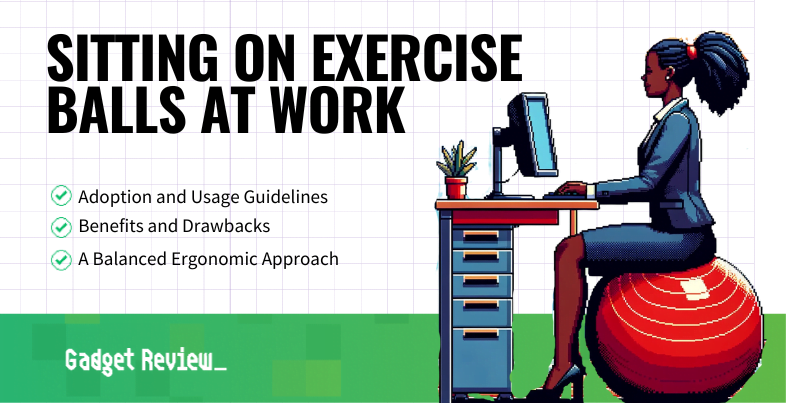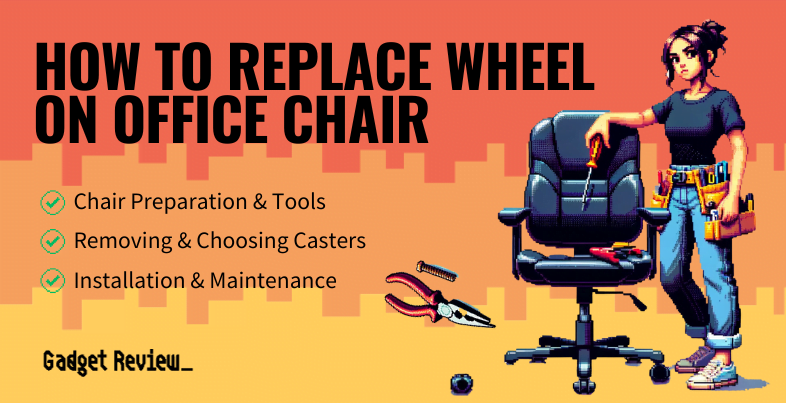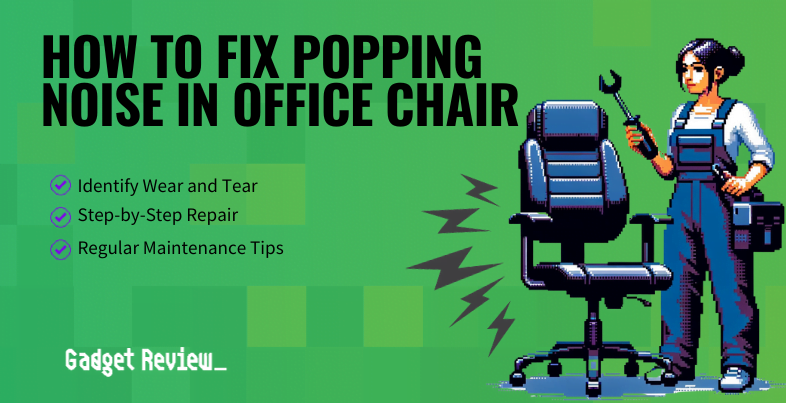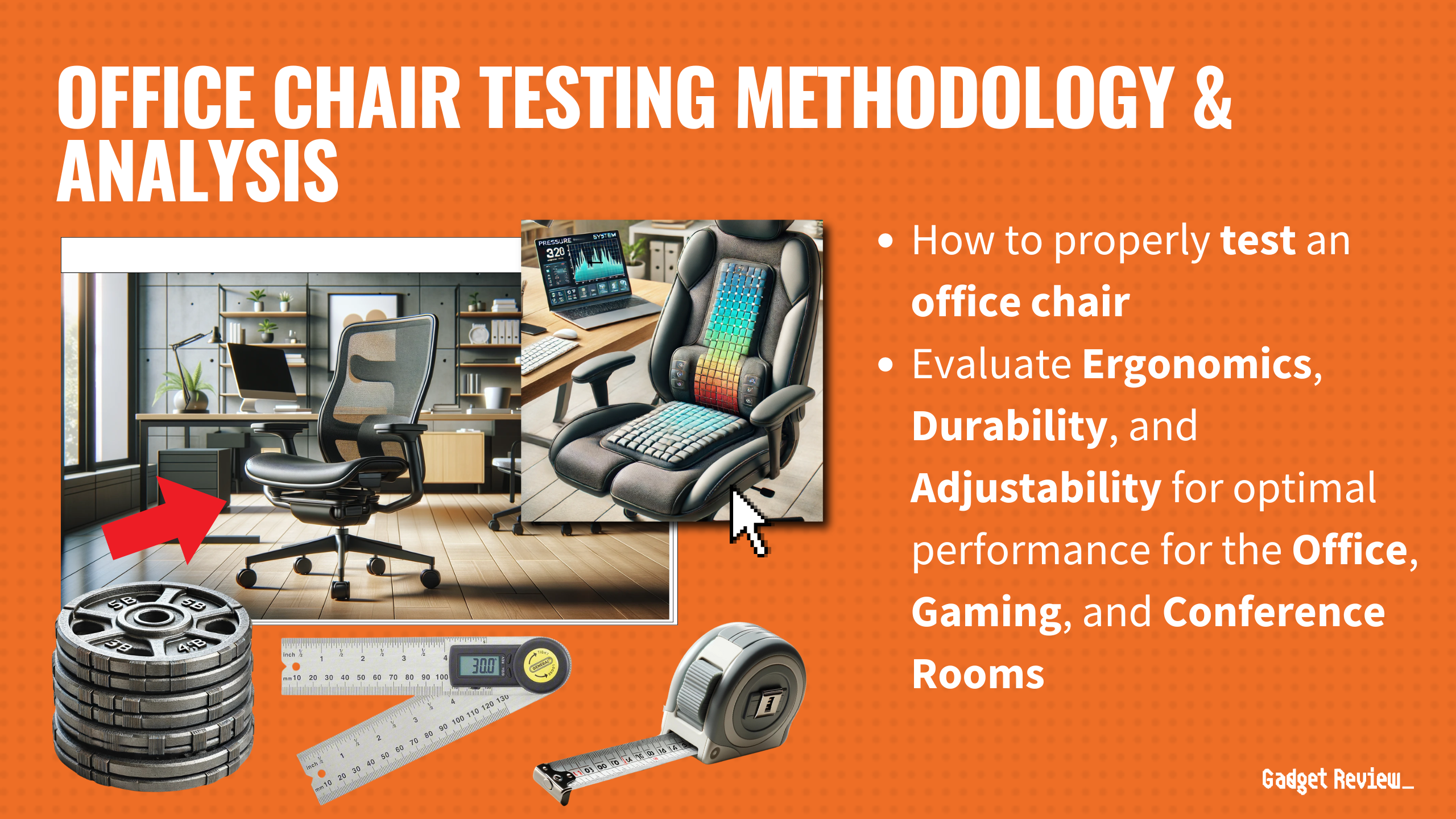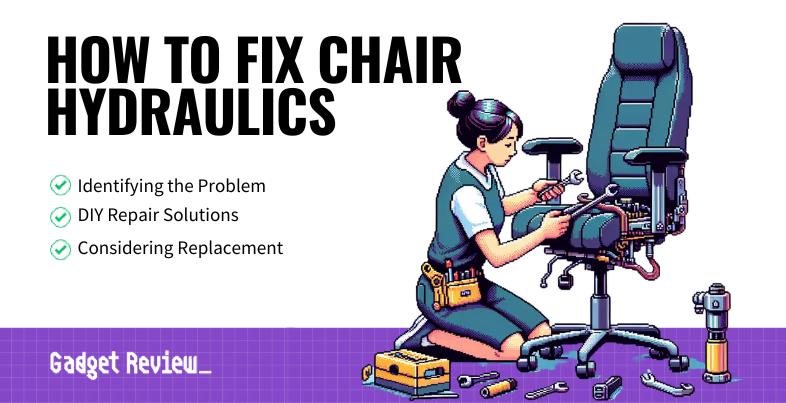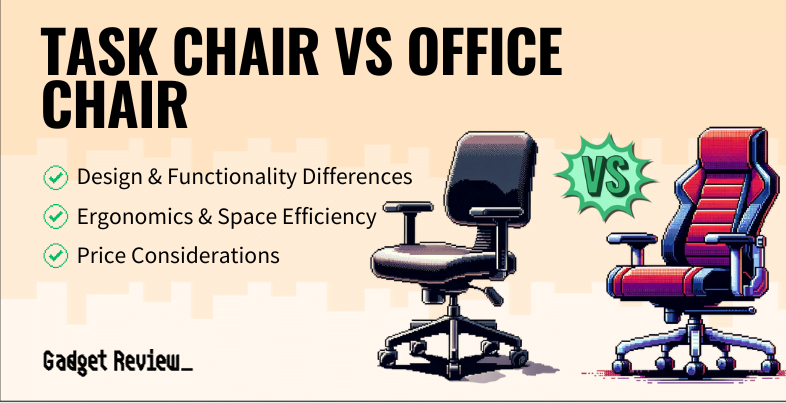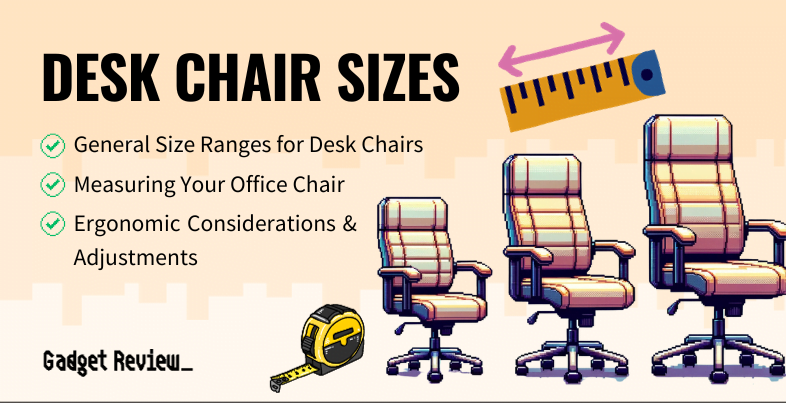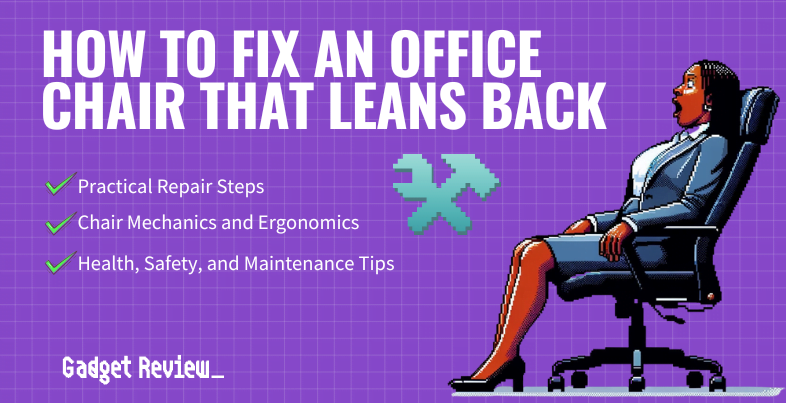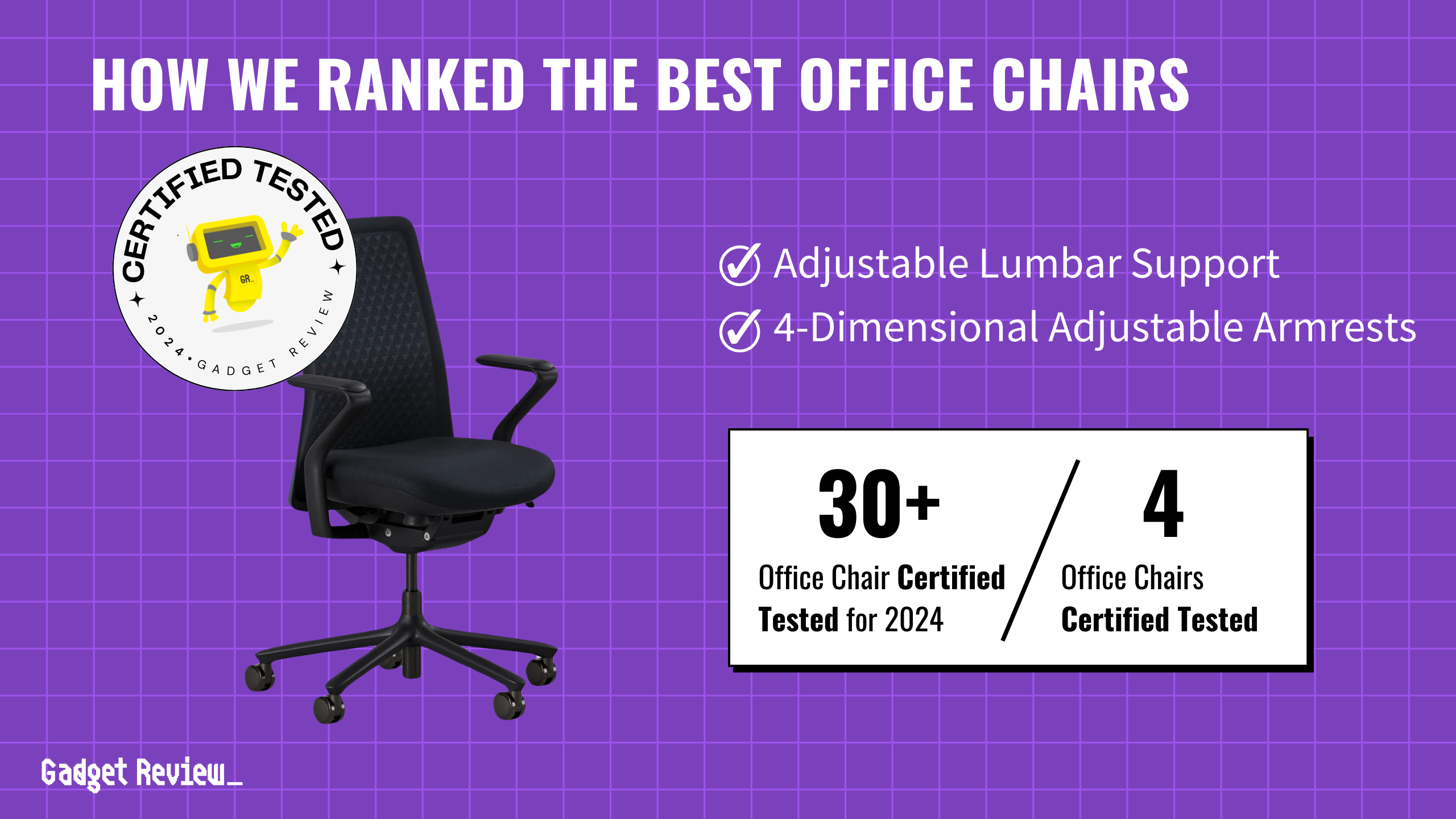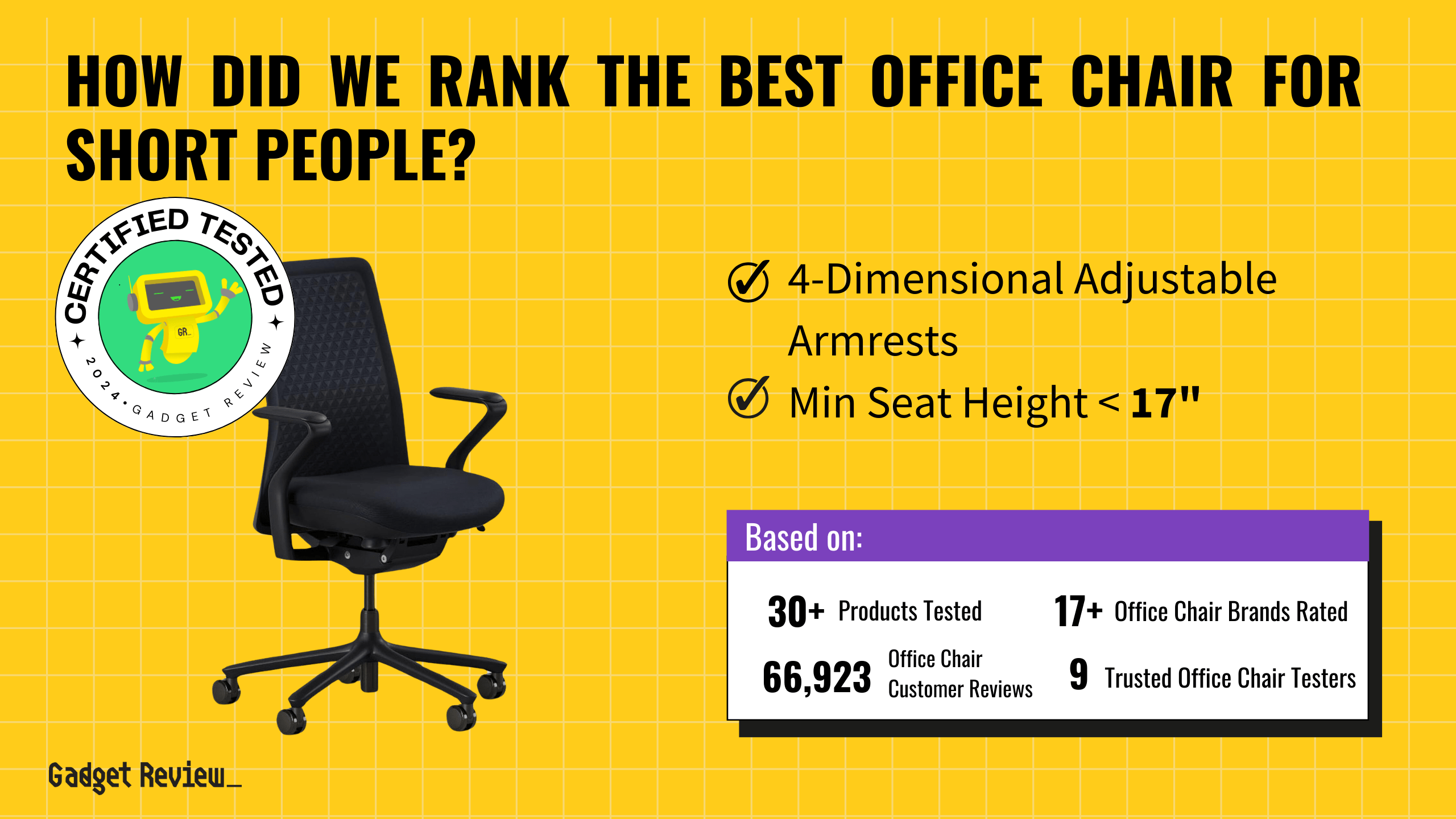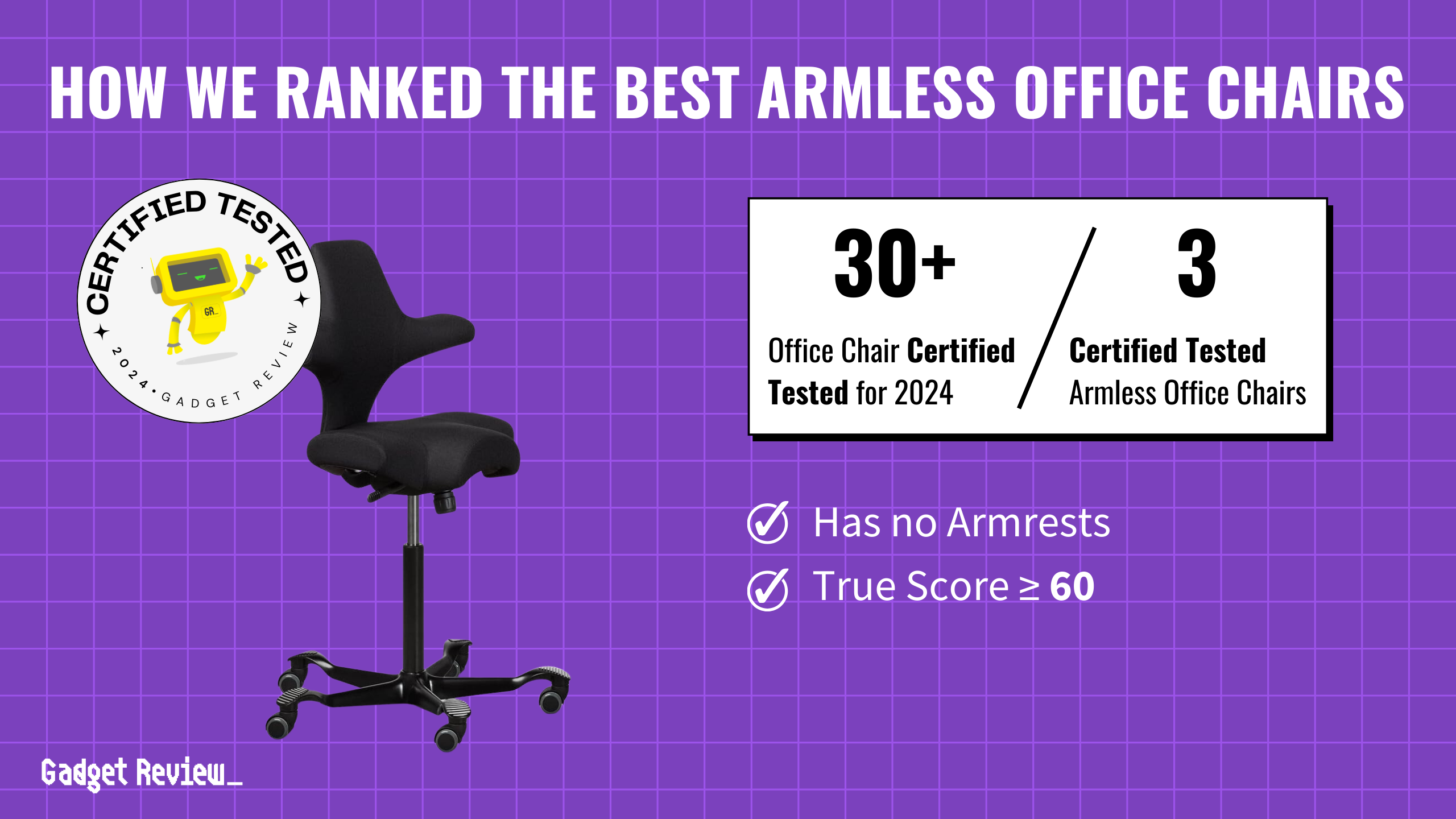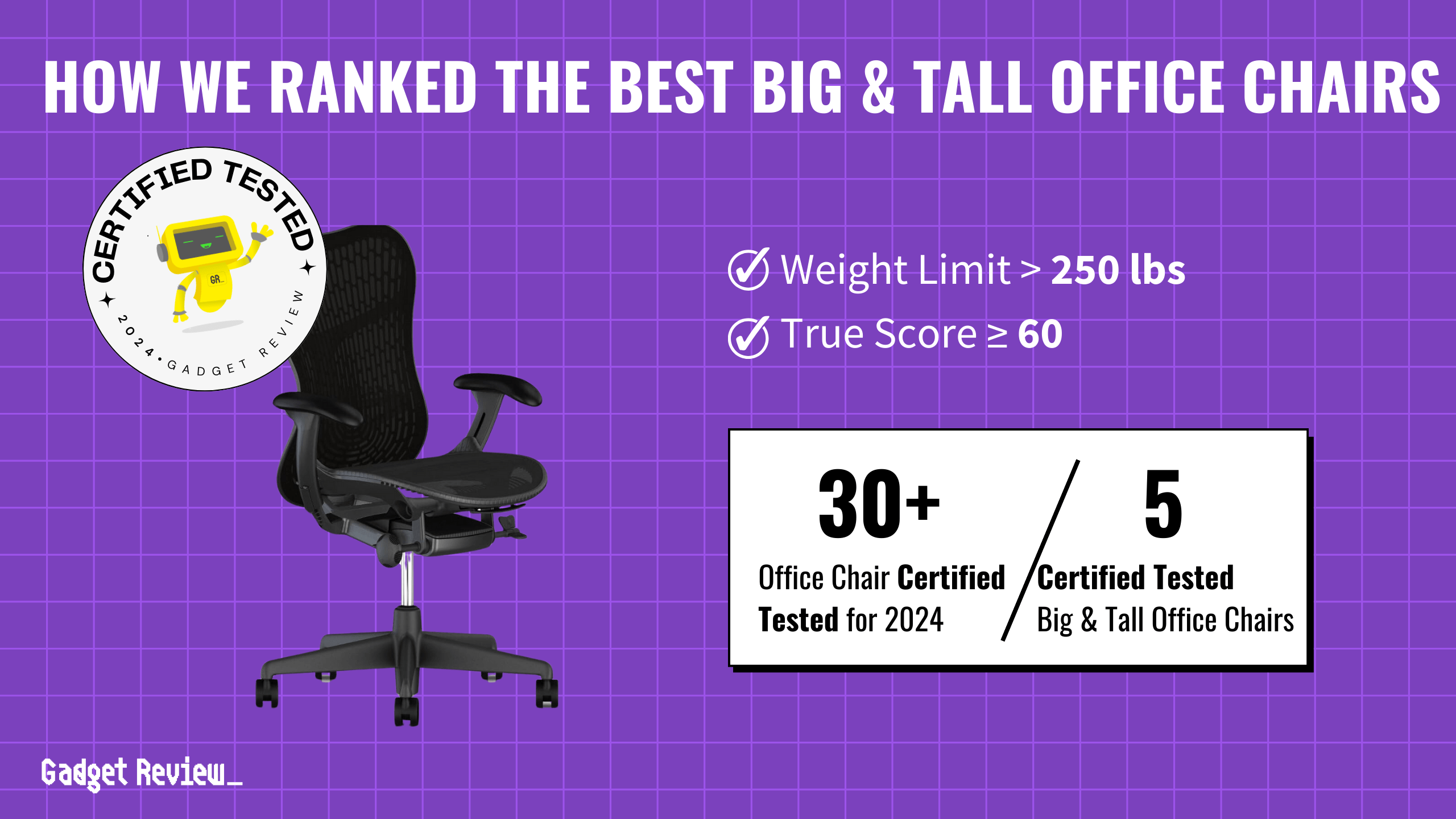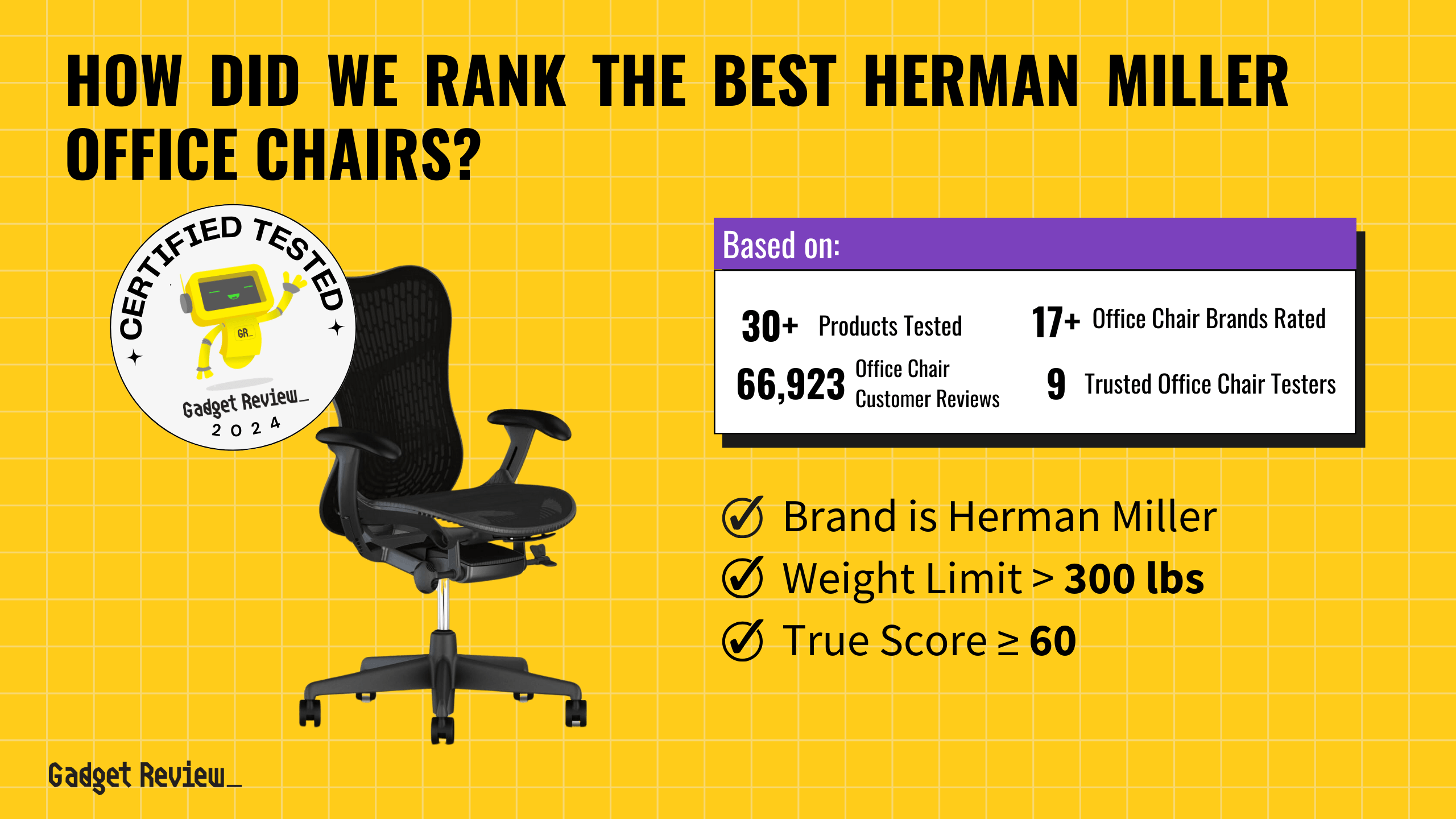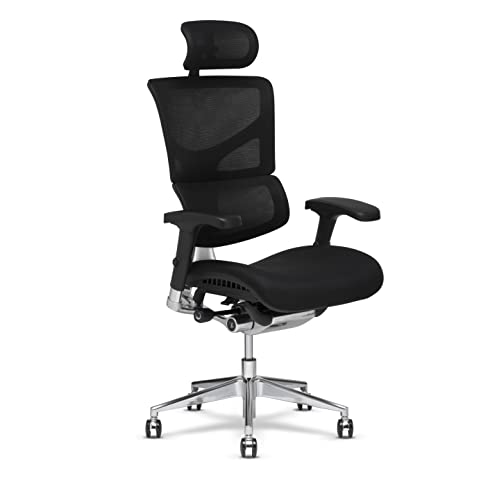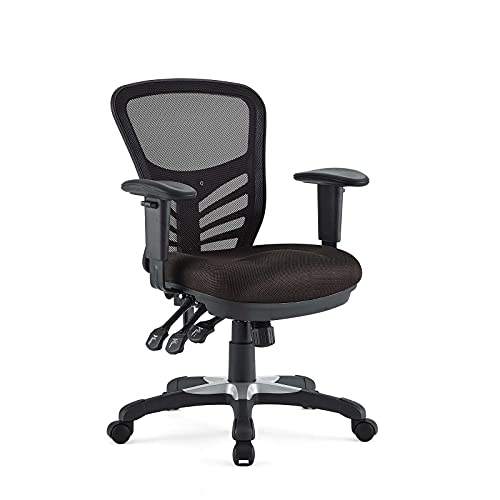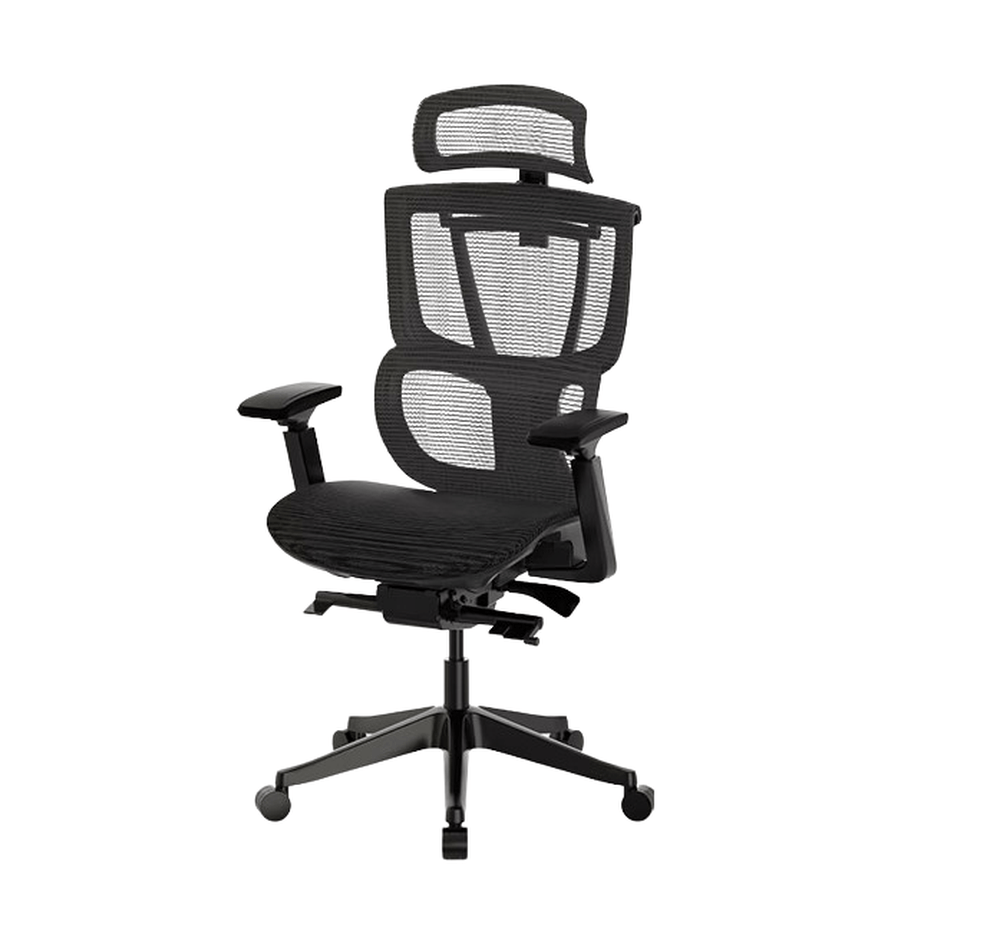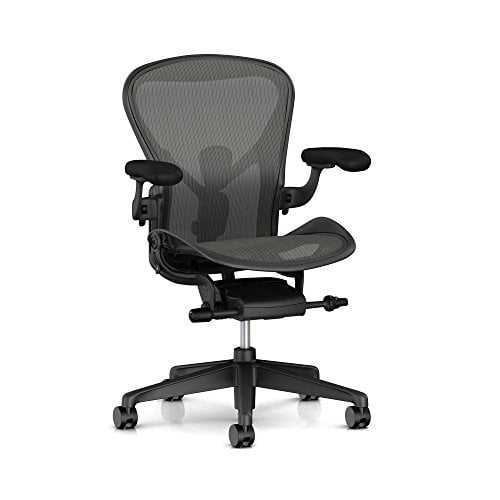In the evolving landscape of office ergonomics, the use of exercise balls as an alternative to traditional office chairs has sparked considerable debate.
In this post, we dive into the multifaceted discussion surrounding the adoption of exercise balls in the workplace.
Using Exercise Balls in the Office
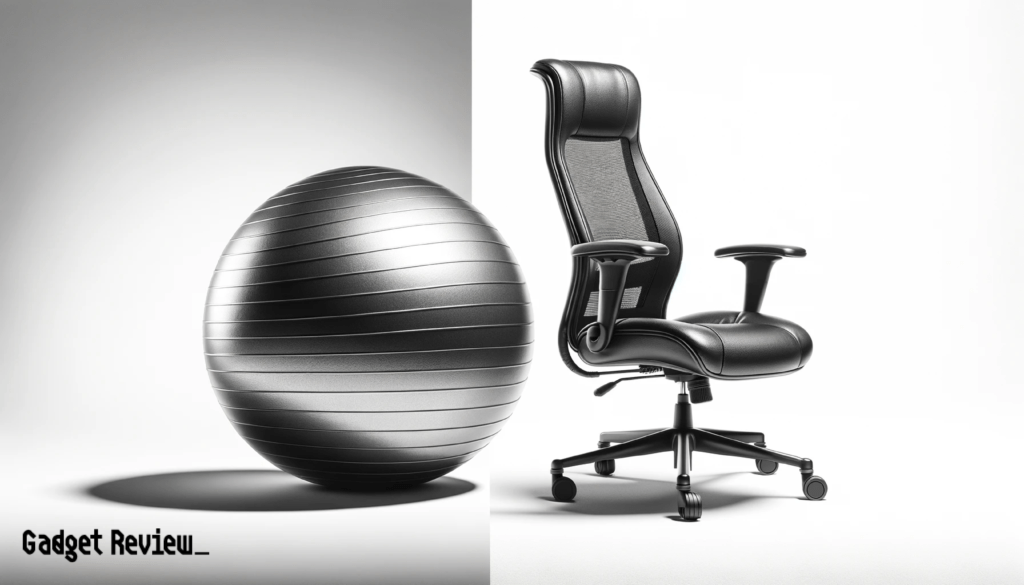
We’ve outlined some steps to take concerning the use of exercise balls at work.
1 Choose the Right Size Ball
Ensure the ball is correctly sized and properly inflated.
2 Use Sparingly
Exercise balls should be used as a part-time seating option.
3 Balance with Traditional Chairs
Alternate between an exercise ball and a conventional office chair.
4 Be Aware of Safety
Understand the risks of instability and potential distractions.
5 Health Regulations
Remember that exercise balls may not meet certain office health and safety standards.
The Rise of Exercise Balls in Office Settings
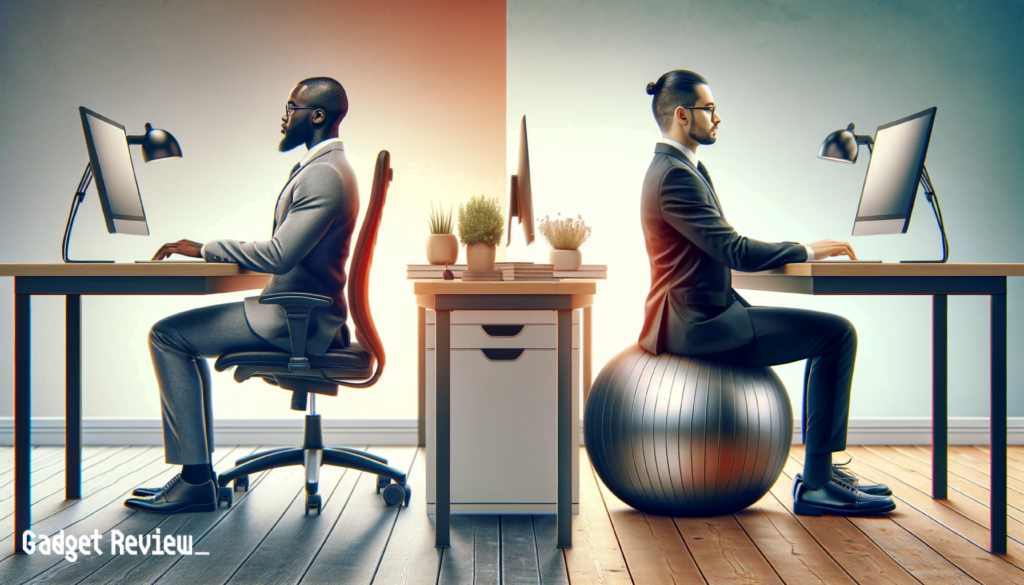
The modern office is constantly evolving, and with it, the tools we use.
The exercise ball has rolled its way into the office, touted for its potential health benefits.
But is it the ergonomic revolution it’s claimed to be?
Evaluating the Benefits
- Core Strength and Stability: For tech professionals who spend hours at a desk, an exercise ball can be a game-changer for core muscle development. The need to balance on the ball keeps these muscles engaged, promoting stability.
- Posture and Spine Alignment: Slouching in a chair is a common issue in tech workplaces. An exercise ball encourages a more dynamic sitting posture, which can lead to better spinal alignment over time.
- Dynamic Sitting Experience: Unlike the static nature of traditional office chairs, exercise balls encourage movement. This can be a boon for those who experience discomfort from sitting in one position for too long.
Addressing the Drawbacks
- Support and Comfort Issues: Exercise balls lack the ergonomic design of office chairs, particularly in supporting the lower back and arms, which can lead to discomfort.
- Safety Concerns: The instability of exercise balls raises safety concerns. The risk of falling is not something to overlook, especially when you’re engrossed in complex coding or design tasks.
- Concentration and Productivity: Maintaining balance and proper posture on an exercise ball requires effort, which can distract from the task at hand, potentially affecting productivity.
Practical Considerations and Recommendations
- Temporary Seating Option: Use the exercise ball for short periods. Prolonged use can lead to discomfort and decreased productivity.
- Right Size and Inflation: Selecting the right size for your height and ensuring it’s properly inflated are key to making the most of your exercise ball.
- Alternating with Traditional Chairs: To get the best of both worlds, alternate between your exercise ball and a traditional office chair. This approach allows you to enjoy the benefits of an exercise ball while mitigating its drawbacks.
- Regulatory and Liability Aspects: For employers, it’s crucial to note that exercise balls don’t meet certain office furniture health and safety standards, which could lead to liability issues.
Finding A Balanced Approach
While exercise balls can offer certain health and ergonomic benefits, they are not a comprehensive solution for office seating. For tech professionals, who need a blend of comfort, stability, and focus, a balanced approach is key.
Incorporating both exercise balls and traditional office chairs, along with adherence to safety guidelines, can optimize the benefits while mitigating the risks. The goal is to enhance your work environment, not to introduce new challenges.
By understanding both the benefits and limitations of this trend, you can make a decision that best suits your ergonomic needs and work style.
Remember, in the world of office ergonomics, one size does not fit all.

